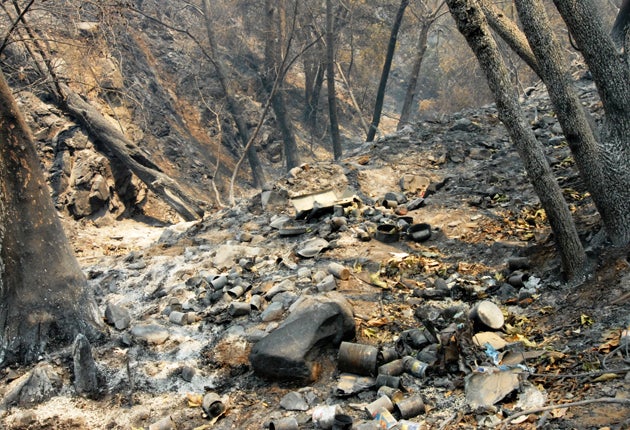Your support helps us to tell the story
From reproductive rights to climate change to Big Tech, The Independent is on the ground when the story is developing. Whether it's investigating the financials of Elon Musk's pro-Trump PAC or producing our latest documentary, 'The A Word', which shines a light on the American women fighting for reproductive rights, we know how important it is to parse out the facts from the messaging.
At such a critical moment in US history, we need reporters on the ground. Your donation allows us to keep sending journalists to speak to both sides of the story.
The Independent is trusted by Americans across the entire political spectrum. And unlike many other quality news outlets, we choose not to lock Americans out of our reporting and analysis with paywalls. We believe quality journalism should be available to everyone, paid for by those who can afford it.
Your support makes all the difference.Marijuana has been accused of causing depression, triggering cancer and turning sparkly teenagers into apathetic couch potatoes. Now it is being held responsible for a heinous new misdemeanour: setting the state of California on fire.
Police investigating a vast wildfire that burned almost 90,000 acres of the Los Padres National Forest around Santa Barbara last weekend have announced that it was started by a group of marijuana growers. More than 30,000 plants were seized after the vast blaze, which had filled the sky with orange smoke as far south as Los Angeles, 150 miles away, was traced to the cooking area of a cannabis plantation on public land in a remote corner of the Sierra Madre mountains.
Six drug traffickers, apparently from Mexico, are believed to have been responsible for the farming operation, which relied on diverting a stream into a sophisticated irrigation network. Propane tanks, water tubes, fertiliser and a semi-automatic weapon were also recovered from the area.
In a region suffering acute water shortages, and where wildfires destroy hundreds of homes and cause several deaths each year, police have been quick to portray widespread rural cannabis farms as the latest great threat to public safety. "No pun intended, but it's a growing problem," said US Forest Service Special Agent Russ Arthur. Cannabis farmers are suspected of starting five or six smaller blazes already this year, he said.
Any activity – illegal or otherwise – that encourages people to camp out in the tinder-dry wilderness is likely to result in accidental fires, he added. Last weekend's blaze, which saw dozens of homes and ranches evacuated, was caused by a faulty cooking device. Police say that a recent crackdown on urban marijuana growers has prompted drug gangs to step up their operations in remote areas. In the past six months, in Santa Barbara County alone, police have recovered 225,000 pot plants, with a street value of £675m.
The news is fuelling debate over the status of the drug, in a state where some regions never quite emerged from the Summer of Love. Medicinal marijuana use was introduced in California by a majority vote in a 1996 referendum, but the drug remains officially proscribed under federal law. In practice, this means that cannabis is readily available to any Californian able to find a doctor who, for a small fee, will sign a piece of paper asserting that they suffer from a condition such as insomnia or anxiety.
However, so-called "dispensaries" that supply the drug are in a trickier legal position. In some areas, they are tolerated, but in others, owners have been prosecuted for committing a federal offence. In July, a series of TV advertisements appeared supporting a bill by a Democratic assemblyman, Tom Ammiano, to legalise the drug completely, introducing a new "weed tax" that would raise an estimated $1bn (£600m) a year for Governor Arnold Schwarzenegger's cash-strapped administration.
Pro-legalisation campaigners say that last week's fire, together with the proliferation of illegal farms in other tinder-dry rural areas, strengthens the case for legal reform. "With any other agricultural product, farmers must obey environmental laws and labour laws that prevent things like fires happening," Bruce Mirken of the Marijuana Policy Project said. "None of that applies to an illegal industry. In fact, illegality merely incentivises them to farm in remote and ecologically sensitive areas.
"You don't hear of fires being started by Mexican beer cartels. This is a clear example of law enforcement making a problem worse – it has literally driven marijuana growers, which at present include some of the most unsavoury people on the planet, into California's hills."

Join our commenting forum
Join thought-provoking conversations, follow other Independent readers and see their replies
Comments